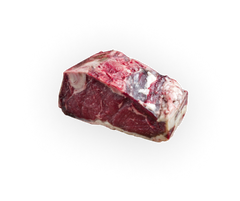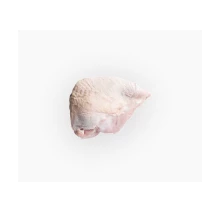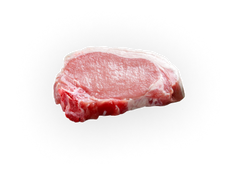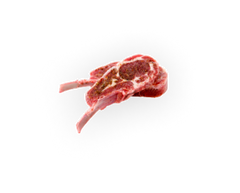Understanding the value and role that protein plays in our diet and health, is crucial to making the right choices when buying it. Is all protein equal, and the reasons we should look at quality when thinking of our health and well-being.
So, what is protein? Protein is one of the main macronutrients, it is an essential food group that we need to consume daily to maintain good health, as unlike the other macronutrients, our body cannot store protein. Protein is made of a combination of amino acids. There are hundreds of amino acids available, however, 10 amino acids are essential for our good health and as the name suggests, they are known as essential amino acids. meat, seafood, and dairy are known as complete proteins as they contain all 10 of these essential amino acids.
Now we know more about protein, let's look at the role it plays in our health. Muscles, ligaments, tendons, hair, and teeth are primarily made up of protein. As we go about our daily lives, moving around, walking, exercising, going to the gym, and running our errands, our body sustains small microtears that we are not aware of but are part of life. At the end of the day when we rest and go to sleep, our internal body gets to work rebuilding and repairing any microtears and damage that may have occurred in our tendons, muscles, bones, and ligaments.
When we look at sources of protein, it is important to look at the whole 'package', meaning it will also contain fiber, fats, and sodium which all contribute to our good health. We are also looking for good quality protein, which does not contain antibiotics and other chemical products that are harmful to our health and well-being. Therefore, the quality and quantity of the protein will vary greatly. For example, a 4 oz steak will provide you with about 33 grams of protein as well as the fat and fiber it contains, whereas a precooked meal with the same protein content will also contain fillers, modified oils, excess salt, and modified sugars, which we know are detrimental to our health. The quantity of protein is the same, however, the value from a nutritional and health perspective means they are on opposite ends of the spectrum.
Protein supports satiety, as it helps to stabilize our blood sugar levels, this has a knock effect on how hungry we feel. It is therefore an important food group for type 2 diabetics, as unlike carbohydrates which do increase our sugar levels, protein will help stabilize them. This is why having some protein at every meal will help to stave off those sugar cravings and help you feel fuller for longer. It is important to also acknowledge that as with all foods we consume, eating too much can lead to weight gain. Now we understand it value and role it is easy to see how important it is to include protein in all mealtimes, ensuring that we have a balanced intake throughout the day. This again will help balance our blood sugar levels and our energy. However, there are various times in life when protein intake can be increased, this is in childhood, pregnancy, following an injury or surgery and with older adults.
When we look at protein, it is important to include seafood and fish, as this is also an excellent source of protein. Seafood and fish contain less connective tissue, which makes them quick to cook and easier to digest for some, than red meat. They are also an excellent source of healthy fats. So, combining these two sources of protein throughout the week makes sure that we are getting all the varied benefits of protein, and this will also improve your health and well-being.
Susan is originally from Switzerland where she met her Canadian husband whilst working at a global agribusiness company in Geneva. She then studied at the University of Brighton (U.K.) where she received her Nursing Diploma. When their daughter was diagnosed as being gluten and dairy intolerant, Susan decided to take a new approach to health and trained as a Registered Holistic Nutritionist, with the Canadian School of Natural Nutrition, where she graduated in 2016.






